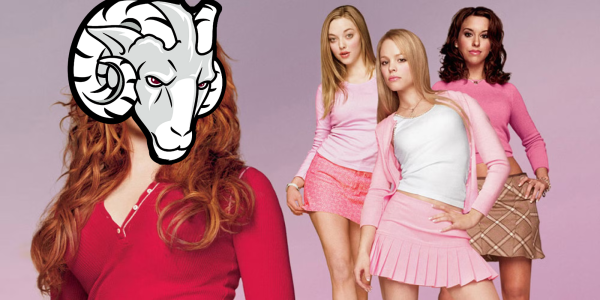Authors Need to Stop Using the Word “Girl” When Titling Books
In the past year and a half, I have read six books with the word “girl” in the title, and my to-be-read pile contains an additional five titles containing the word “girl.” In 2016, author Emily St. John Mandel found that there were, in fact, 810 titles (excluding children’s books, young adults books and those with under 250 ratings) that include the word “girl” listed on Goodreads. This number has increased since 2016, but that is the last time such detailed research was conducted. Interestingly, St. John Mandel’s research revealed that 65% of the “girls” in these books are actually adult women. So what is the cause of this strange and somewhat misleading publishing trend?
The answer: It sells. Some of the most successful books in the past 10 years have fallen into this trap. Think “The Girl on the Train” by Paula Hawkins, “The Girls” by Emma Cline, “Gone Girl” by Gillian Flynn and “Final Girls” by Riley Sager. Using the word “girl” to refer to a grown woman communicates something very specific about the protagonist to the reader. She is pretty, not glamorous, she appears naive, she’s spent her whole life conforming to a domestic stereotype and she is about to crack. As a reader, we know the book will reveal the cold, ruthless side of her personality that’s hiding just below the modest outfit and perfectly shiny hair.
This in itself is not the problem. I find stories like this incredibly compelling. In revealing a darker side of the protagonists, these characters serve as a way to unwork the common stereotypes in literature and film of women as one dimensional in relation to their male counterparts. These authors present us with your typical “girl next door” character, and then dive deeper into her inner thoughts, intelligence and turmoil. However, even though the message portrayed to the reader is arguably a feminist one, the fact that we have been conditioned to see the word “girl” and think of this genre is problematic.
Books with the word “woman” or “women” in the title typically conjure a very different image. She is rebellious from the start, she is eccentric and the author won’t spend nearly as much time focused on her effortlessly put-together beauty (think “Convenience Store Woman” by Sayaka Murata or “The Woman Destroyed” by Simone de Beauvior). These two female characters, the woman and the girl, are equally valid and interesting characters, so why is one called a woman and the other a girl? I think it relates back to the “girl next door” stereotype. While the “girl” books attempt to break it, I find they often play directly into it, suggesting that to be “beautiful,” a woman must appear innocent, naive, effortless, docile and modest (in both dress and achievements). This plays into a problematic societal beauty standard for women that upholds youth (and even adolescence) as the ultimate beauty, in an all-too-often dark and creepy way.
Additionally, referring to grown women as girls has historically been considered infantilizing and demeaning by feminists, especially considering men are rarely ever called boys in professional atmospheres or literature. Calling women girls insinuates that they are immature and must be cared for, negating their life experiences and authority as adults.
The issue goes even deeper when it comes to the publishing trend of calling women characters girls, because the use of the word “girl” implies that the story is a type of “coming of age” tale. In reality, many of these books are not coming of age stories at all, but rather stories of strong, independent women taking control of a situation. Calling the protagonist a girl takes away her autonomy and voice, making it seem like she simply learned a lesson, rather than being an agent in the story.
Even if the character proves she is strong (enacts the perfect revenge, solves the mystery, escapes the killer, etc.), when you close the book and see the title, it sends the message that the whole thing was the result of youthful naivete, fueled by teenage emotion, rather than an autonomous decision-maker. It is important to note that you will rarely ever find a book where an adult man is referred to as a boy, aside from romance novels where the male character is not the protagonist.
Whether you agree with me or not that the use of the word “girl” in the titles of novels is a problematic trope, I think we can all agree it is getting stale. Literature has made incredible strides in the portrayal of female characters as multifaceted and autonomous individuals, and it’s time for book titles to catch up.
Ava Erickson, FCRH ’23, is a journalism and Spanish studies major from Denver, Colo.

Ava Erickson is a senior from Denver. Her passion for writing and language led her to double major in journalism and Spanish studies. She began working...













































































































































































































